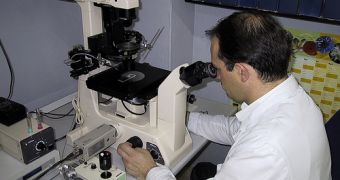Maternal deaths related to in vitro fertilization (IVF) are rather rare, but this does not mean they should be ignored by older women, those with multiple pregnancy and those with underlying disease, experts warn in an editorial published on bmj.com.
Dr Susan Bewley, from the Kings Health Partners, Women’s Services, Guy’s and St Thomas’ NHS Foundation Trust, London, and colleagues, warn that IVF can cause some serious adverse reactions – like the ovarian hyperstimulation syndrome caused by some fertility drugs.
These outcomes should be reported so that appropriate measures can be taken in the future.
The first published report of a maternal death related to IVF was in 1991, and it predicted that death rates will increase.
It said that as assisted reproductive technologies will become more frequent, so will the IVF-related deaths, because of pregnancies at an older age, multiple pregnancies or preeclampsia.
A recent study from the Netherlands, also concluded that overall mortality in IVF pregnancies was higher than the maternal mortality rate in the general population in the Netherlands, a fact that a UK research confirmed.
In the Netherlands, there were about 42 mothers' deaths per 100,000 IVF pregnancies, compared to 6 deaths per 100,000 pregnancies overall, and the last UK Confidential Inquiry into Maternal Death recorded four deaths directly related to IVF via ovarian hyperstimulation syndrome and three deaths related to multiple pregnancy after IVF.
Also, the authors say that more deaths were related to ovarian hyperstimulation syndrome than to abortion, despite the lower number of IVF procedures – 48,829 IVF cycles versus 198,500 abortions in the UK in 2007.
They add that IVF-related maternal deaths could be underestimated, because of confidentiality restrictions imposed by the Human Fertilization Act.
The general idea is that women who turn to assisted reproduction are healthier than average, and this ensures a safe pregnancy, but the figures of maternal mortality suggest otherwise.
And even though IVF pregnancies in the UK are still very safe, the authors argue that deaths could reflect a far bigger burden of severe adverse morbidity.
So, to prevent death and disability, it is necessary to have better information about the risks of fertility treatments, better identification of high risk women and also more single embryo transfer.
They conclude that “more stringent attention to stimulation regimens, preconceptual care, and pregnancy management is needed so that maternal death and severe morbidity do not worsen further.”
Susan Bewley worked on this with academic foundation trainee Lin Foo, from Royal London Hospital, Barts and London NHS Trust, and Peter Braude, professor of obstetrics and gynecology at King's College London, Division of Women’s Health, St Thomas’ Hospital, London.

 14 DAY TRIAL //
14 DAY TRIAL //